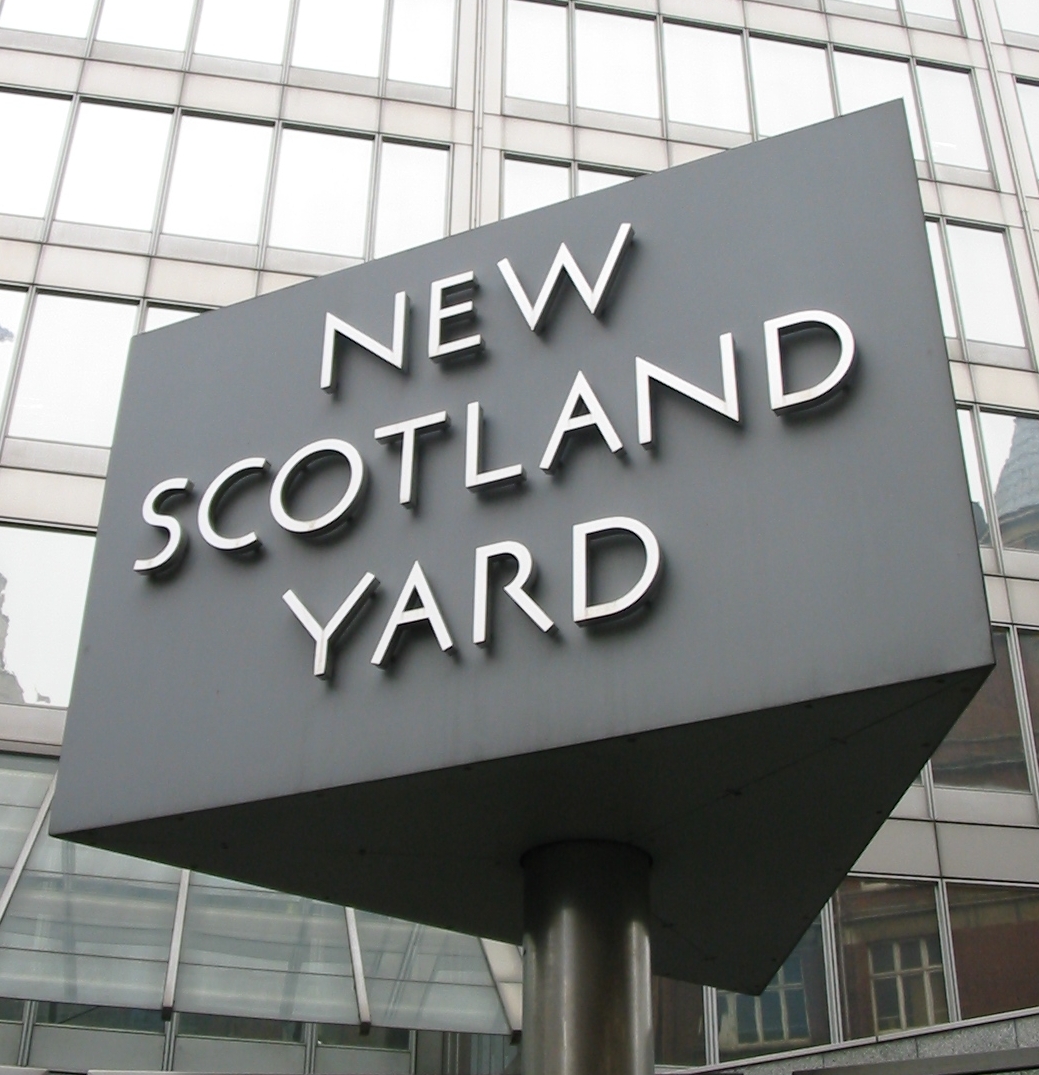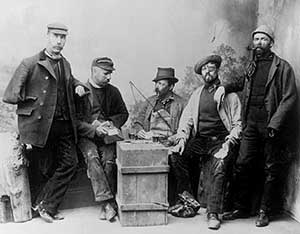|
The Week (1933)
''The Week'' was a British newspaper from 1933 until 1941, described by its founder as an "extreme left-wing news sheet". Marxist journalist Claud Cockburn launched the first British publication known as ''The Week'' as a newsletter in the spring of 1933, after he had returned from reporting on Germany. It focused on the rise of fascism. Jessica Mitford in ''A Fine Old Conflict'' attributed the journal's influence to its use of undercover sources. It ceased publication in 1941. Article and quotes from sources. In the late 1930s, ''The Week'' was highly critical of Neville Chamberlain and his policy of appeasement.Watt, Donald Cameron "Rumors as Evidence" pages 276-286 from ''Russia War, Peace and Diplomacy'' edited by Ljubica & Mark Erickson, London: Weidenfeld & Nicolson, 2004 page 278. Cockburn maintained in the 1960s that much of the information in ''The Week'' was leaked to him by Sir Robert Vansittart, the Permanent Under-Secretary of the Foreign Office. At the same time ... [...More Info...] [...Related Items...] OR: [Wikipedia] [Google] [Baidu] |
Marxist
Marxism is a political philosophy and method of socioeconomic analysis. It uses a dialectical and materialist interpretation of historical development, better known as historical materialism, to analyse class relations, social conflict, and social transformation. Marxism originates from the works of 19th-century German philosophers Karl Marx and Friedrich Engels. Marxism has developed over time into various branches and schools of thought, and as a result, there is no single, definitive " Marxist theory". Marxism has had a profound effect in shaping the modern world, with various left-wing and far-left political movements taking inspiration from it in varying local contexts. In addition to the various schools of thought, which emphasize or modify elements of classical Marxism, several Marxian concepts have been incorporated into an array of social theories. This has led to widely varying conclusions. Alongside Marx's critique of political economy, the defining ... [...More Info...] [...Related Items...] OR: [Wikipedia] [Google] [Baidu] |
Scotland Yard
Scotland Yard (officially New Scotland Yard) is the headquarters of the Metropolitan Police, the territorial police force responsible for policing Greater London's London boroughs, 32 boroughs. Its name derives from the location of the original Metropolitan Police headquarters at 4 Whitehall Place, which had its main public entrance on the Westminster street called Great Scotland Yard. The Scotland Yard entrance became the public entrance, and over time "Scotland Yard" came to be used not only as the common name of the headquarters building, but also as a metonym for the Metropolitan Police Service (MPS) itself and police officers, especially detectives, who serve in it. ''The New York Times'' wrote in 1964 that, just as Wall Street gave its name to New York's financial district, Scotland Yard became the name for police activity in London. The force moved from Great Scotland Yard in 1890, to a newly completed building on the Victoria Embankment, and the name "New Scotland Yard" ... [...More Info...] [...Related Items...] OR: [Wikipedia] [Google] [Baidu] |
Magazines Disestablished In 1941
A magazine is a periodical publication, print or digital, produced on a regular schedule, that contains any of a variety of subject-oriented textual and visual content forms. Magazines are generally financed by advertising, purchase price, prepaid subscriptions, or by a combination of the three. They are categorised by their frequency of publication (i.e., as weeklies, monthlies, quarterlies, etc.), their target audiences (e.g., women's and trade magazines), their subjects of focus (e.g., popular science and religious), and their tones or approach (e.g., works of satire or humor). Appearance on the cover of print magazines has historically been understood to convey a place of honor or distinction to an individual or event. Term origin and definition Origin The etymology of the word "magazine" suggests derivation from the Arabic (), the broken plural of () meaning "depot, storehouse" (originally military storehouse); that comes to English via Middle French and Italian . ... [...More Info...] [...Related Items...] OR: [Wikipedia] [Google] [Baidu] |
English-language Magazines
English is a West Germanic language that developed in early medieval England and has since become a global lingua franca. The namesake of the language is the Angles, one of the Germanic peoples that migrated to Britain after its Roman occupiers left. English is the most spoken language in the world, primarily due to the global influences of the former British Empire (succeeded by the Commonwealth of Nations) and the United States. English is the third-most spoken native language, after Mandarin Chinese and Spanish; it is also the most widely learned second language in the world, with more second-language speakers than native speakers. English is either the official language or one of the official languages in 57 sovereign states and 30 dependent territories, making it the most geographically widespread language in the world. In the United Kingdom, the United States, Australia, and New Zealand, it is the dominant language for historical reasons without being explicit ... [...More Info...] [...Related Items...] OR: [Wikipedia] [Google] [Baidu] |
Defunct Political Magazines Published In The United Kingdom
{{Disambiguation ...
Defunct may refer to: * ''Defunct'' (video game), 2014 * Zombie process or defunct process, in Unix-like operating systems See also * * :Former entities * End-of-life product * Obsolescence Obsolescence is the process of becoming antiquated, out of date, old-fashioned, no longer in general use, or no longer useful, or the condition of being in such a state. When used in a biological sense, it means imperfect or rudimentary when comp ... [...More Info...] [...Related Items...] OR: [Wikipedia] [Google] [Baidu] |
News Magazines Published In The United Kingdom
News is information about current events. This may be provided through many different media: word of mouth, printing, postal systems, broadcasting, electronic communication, or through the testimony of observers and witnesses to events. News is sometimes called "hard news" to differentiate it from soft media. Subject matters for news reports include war, government, politics, education, health, economy, business, fashion, sport, entertainment, and the environment, as well as quirky or unusual events. Government proclamations, concerning royal ceremonies, laws, taxes, public health, and criminals, have been dubbed news since ancient times. Technological and social developments, often driven by government communication and espionage networks, have increased the speed with which news can spread, as well as influenced its content. Throughout history, people have transported new information through oral means. Having developed in China over centuries, newspapers became e ... [...More Info...] [...Related Items...] OR: [Wikipedia] [Google] [Baidu] |
Invasion Of Yugoslavia
The invasion of Yugoslavia, also known as the April War or Operation 25, was a Nazi Germany, German-led attack on the Kingdom of Yugoslavia by the Axis powers which began on 6 April 1941 during World War II. The order for the invasion was put forward in "Führer Directive No. 25", which Adolf Hitler issued on 27 March 1941, following a Yugoslav coup d'état that overthrew the pro-Axis government. The invasion commenced with an overwhelming Operation Retribution (1941), air attack on Belgrade and facilities of the Royal Yugoslav Air Force (VVKJ) by the Luftwaffe (German Air Force) and attacks by German Army (Wehrmacht), German land forces from southwestern Kingdom of Bulgaria, Bulgaria. These attacks were followed by German thrusts from Kingdom of Romania, Romania, Kingdom of Hungary (1920–1946), Hungary and the Ostmark (Austria), Ostmark (modern-day Austria, then part of Germany). Italian forces were limited to air and artillery attacks until 11 April, when the Royal Italian Ar ... [...More Info...] [...Related Items...] OR: [Wikipedia] [Google] [Baidu] |
Cliveden Set
The Cliveden set were an upper-class group of politically influential people active in the 1930s in the United Kingdom, prior to the Second World War. They were in the circle of Nancy Astor, Viscountess Astor, the first female Member of Parliament (United Kingdom), Member of Parliament to take up her seat. The name comes from Cliveden, a stately home in Buckinghamshire that was Astor's country residence. The "Cliveden Set" tag was neologism, coined by Claud Cockburn in his journalism for the communist newspaper ''The Week (1933), The Week''. His notion of an upper class pro-German conspiracy was widely accepted by opponents of Appeasement in the late 1930s. It was long accepted that the aristocracy (class), aristocratic Germanophile social network supported friendly relations with Nazi Germany and helped create the 1930s policy of appeasement. John L. Spivak, writing in 1939, devoted a chapter to the Cliveden Set. After the end of World War II in Europe, the discovery of the N ... [...More Info...] [...Related Items...] OR: [Wikipedia] [Google] [Baidu] |
Molotov–Ribbentrop Pact
The Molotov–Ribbentrop Pact, officially the Treaty of Non-Aggression between Germany and the Union of Soviet Socialist Republics, and also known as the Hitler–Stalin Pact and the Nazi–Soviet Pact, was a non-aggression pact between Nazi Germany and the Soviet Union, with a secret protocol establishing Soviet and German spheres of influence across Eastern Europe. The pact was signed in Moscow on 24 August 1939 (backdated 23 August 1939) by Soviet Foreign Minister Vyacheslav Molotov and German Foreign Minister Joachim von Ribbentrop. The treaty was the culmination of negotiations around Nazi–Soviet economic relations (1934–1941)#1938–1939 deal discussions, the 1938–1939 deal discussions, after tripartite discussions between the Soviet Union, the United Kingdom and France had broken down. The Soviet-German pact committed both sides to neither aid nor ally itself with an enemy of the other for the following 10 years. Under the Secret Protocol, Second Polish Republic, ... [...More Info...] [...Related Items...] OR: [Wikipedia] [Google] [Baidu] |
Special Branch (Metropolitan Police)
Special Branch was a unit in the Metropolitan Police in London, formed as a counter-terrorism unit in 1883 and merged with another unit to form Counter Terrorism Command (SO15) in 2006. It maintained contact with the Security Service (MI5) and had responsibility for, among other things, personal protection of (non-royal) VIPs and performing the role of examining officer at designated ports and airports, as prescribed by the Terrorism Act 2000. History In response to the escalating terror campaign in Britain carried out by the militant Irish Fenians in the 1880s, the Home Secretary Sir William Harcourt established the first counter-terrorism unit ever in 1883, named Special Irish Branch, to combat Irish republican terrorism through infiltration and subversion. It initially formed a section of the Criminal Investigation Department within the London Metropolitan Police. Harcourt envisioned a permanent unit dedicated to the prevention of politically motivated violence throu ... [...More Info...] [...Related Items...] OR: [Wikipedia] [Google] [Baidu] |






